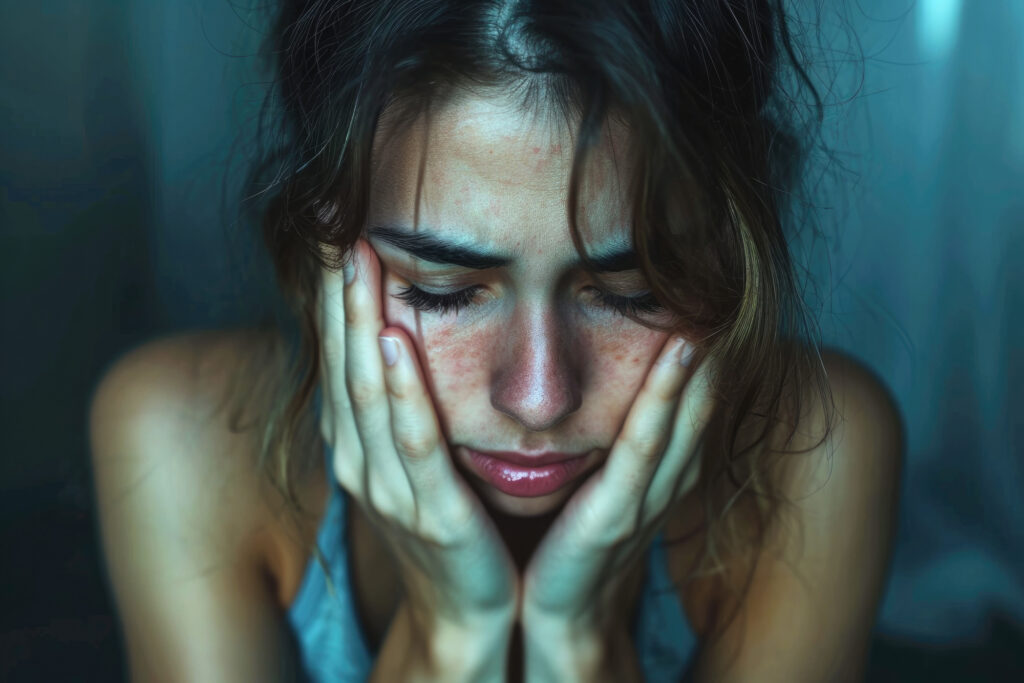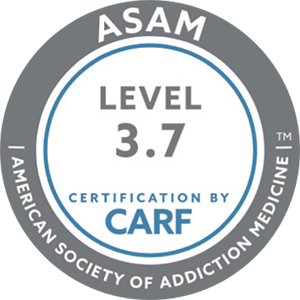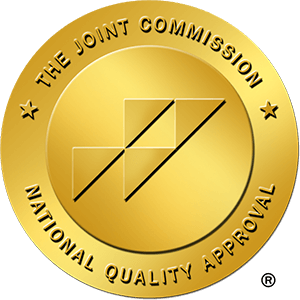Drug-induced psychosis is a serious mental health condition triggered by substance use or withdrawal. It can cause hallucinations, paranoia, and disconnection from reality. Recognizing the signs early and understanding the substances responsible can significantly affect treatment outcomes. This condition underscores the profound impact of certain addictive drugs on mental health. If you or a loved one is faced with potential psychosis from drugs, we urge you to continue reading for more information and tips on how to best face this challenging condition.
Next Steps
If you’re struggling with addiction, you don’t have to face it alone. At Casa Capri, we offer expert, women-centered care in a supportive and nurturing space—designed by women, for women. Our team is here to help you heal with purpose and connection.
Call our admissions team for a free, confidential chat—we’ll even check your insurance and estimate any costs upfront.
What is Drug-Induced Psychosis?
Drug-induced psychosis refers to a temporary or prolonged state of psychosis caused by the use, misuse, or withdrawal of certain substances. Unlike schizophrenia, a chronic mental health disorder, drug-induced psychosis typically resolves once the body is free of the substance and receives proper treatment.
However, the symptoms can be severe and resemble those of schizophrenia, including hallucinations and delusions. Identifying drug-induced psychosis vs. schizophrenia can help differentiate between these conditions, aiding in accurate diagnosis and treatment. As there are complex issues easily misdiagnosed by the untrained, it’s important to speak to a medical professional when addressing the question, “What is drug-induced psychosis?”
Drug-Induced Psychosis Symptoms & Signs
Hallucinations
This drug-induced symptom involves seeing, hearing, or feeling things that are not real. These experiences can be vivid and terrifying, often leading to confusion and fear.
Delusions
Delusions are false beliefs that are firmly held despite clear evidence to the contrary. For instance, a person may believe they are being watched or persecuted.
Paranoia
This condition entails intense distrust or suspicion of others. It can lead to irrational thoughts or behaviors, making it challenging for individuals to function in daily life.
Agitation
Among drug-induced psychosis symptoms, agitation is common. This is a state of heightened restlessness or irritability. This symptom can make interactions difficult and escalate risky behaviors.

Drugs that Cause Psychosis
Several substances are known to induce psychosis, particularly when misused or consumed in large amounts. Below is a list of drugs that cause psychosis, along with the symptoms of psychosis associated with each:
Cocaine
- Paranoia and intense fear
- Auditory and visual hallucinations
- Delusions of grandeur or persecution
- Disorganized thoughts or speech
Methamphetamine
- Extreme paranoia and distrust of others
- Visual or tactile hallucinations (e.g., feeling bugs crawling under the skin)
- Delusions, often involving persecution or conspiracy theories
- Agitation and aggressive behavior
LSD and Other Hallucinogens
- Distorted perception of reality
- Visual hallucinations, including seeing colors, patterns, or shapes
- Paranoia and feelings of doom
- Depersonalization (feeling detached from oneself)
Cannabis (Particularly High-Potency Strains)
- Paranoia and heightened fear
- Auditory or visual hallucinations
- Delusions, such as believing in false or exaggerated ideas
- Disorganized thinking or speech
PCP (Phencyclidine)
- Severe agitation and confusion
- Visual and auditory hallucinations
- Delusions, including feelings of invincibility or paranoia
- Violent or unpredictable behavior
Synthetic Drugs (e.g., Bath Salts)
- Intense paranoia and fear
- Auditory or visual hallucinations
- Delusions, often bizarre or threatening
- Extreme agitation and aggression
Prescription Stimulants (e.g., Adderall, Ritalin)
- Paranoia and suspicion of others
- Hallucinations, often auditory
- Delusions, such as exaggerated self-importance or persecution
- Restlessness and hyperactivity
Irresponsible use of these substances can significantly heighten the risk of psychosis, especially among those already vulnerable to mental health issues. Steering clear of misuse and turning to professional help when necessary can drastically lower these risks.
Does Alcohol Cause Drug-Induced Psychosis?
Although alcohol isn’t generally classified as a drug that causes psychosis, heavy use or withdrawal from it can lead to psychotic episodes. Alcohol-related psychosis often occurs in individuals with severe alcohol dependence or during withdrawal phases. Symptoms can include hallucinations, confusion, and agitation, requiring immediate medical attention.

People Most At Risk of Drug-Induced Psychosis
Individuals with Preexisting Mental Health Conditions
People diagnosed with conditions such as schizophrenia or bipolar disorder are at a higher risk of experiencing drug-induced psychosis.
Adolescents and Young Adults
Younger individuals experimenting with substances are at higher risk due to their still-developing brains and greater likelihood of risky behavior.
Chronic Drug Users
Long-term use of certain substances, such as methamphetamine or high-potency cannabis, increases the risk of psychosis due to cumulative damage to the brain.
If you or someone you know is struggling with psychosis from drugs, Casa Capri Recovery is here to help. Our compassionate team offers specialized care tailored to women’s unique needs, focusing on recovery and mental well-being.

Next Steps
If you’re struggling with addiction, you don’t have to face it alone. At Casa Capri, we offer expert, women-centered care in a supportive and nurturing space—designed by women, for women. Our team is here to help you heal with purpose and connection.
Call our admissions team for a free, confidential chat—we’ll even check your insurance and estimate any costs upfront.
FAQs About Psychosis from Drugs
What drug has the highest rate of psychosis?
Methamphetamine has the highest rate of psychosis due to its potent impact on the brain’s chemistry, making it widely recognized as such.
How long does drug-induced psychosis last?
The duration varies but typically resolves within a few days to weeks after stopping the substance. In some cases, symptoms may persist longer.
Can cannabis cause drug-induced psychosis?
Yes, especially high-potency strains of cannabis or synthetic cannabinoids can trigger psychotic episodes in some individuals.
What’s the difference between drug-induced psychosis and schizophrenia?
Drug-induced psychosis is triggered by substances and often resolves with treatment, whereas schizophrenia is a chronic mental health condition with no specific external cause.
Is drug-induced psychosis a medical emergency?
Yes, it can be. Medical professionals recommend immediate medical attention to manage symptoms and prevent harm to the individual or others.
Are there long-term effects of drug-induced psychosis?
In some cases, prolonged drug use can lead to permanent mental health conditions, including persistent psychosis or cognitive impairments.
Can alcohol-induced psychosis happen to occasional drinkers?
It is rare but possible, especially if alcohol is consumed in extremely high quantities or combined with other substances.
Does dual diagnosis increase the risk of psychosis?
Yes, individuals with a dual diagnosis—a mental health disorder and substance use disorder—are at higher risk of experiencing psychosis.
What is the treatment for drug-induced psychosis?
Treatment typically includes stopping the substance, managing symptoms with medication, and receiving therapy to address underlying issues.
Can psychosis from drugs recur?
Yes, recurrent psychosis is possible, especially if substance use continues or if one does not address underlying mental health conditions.













